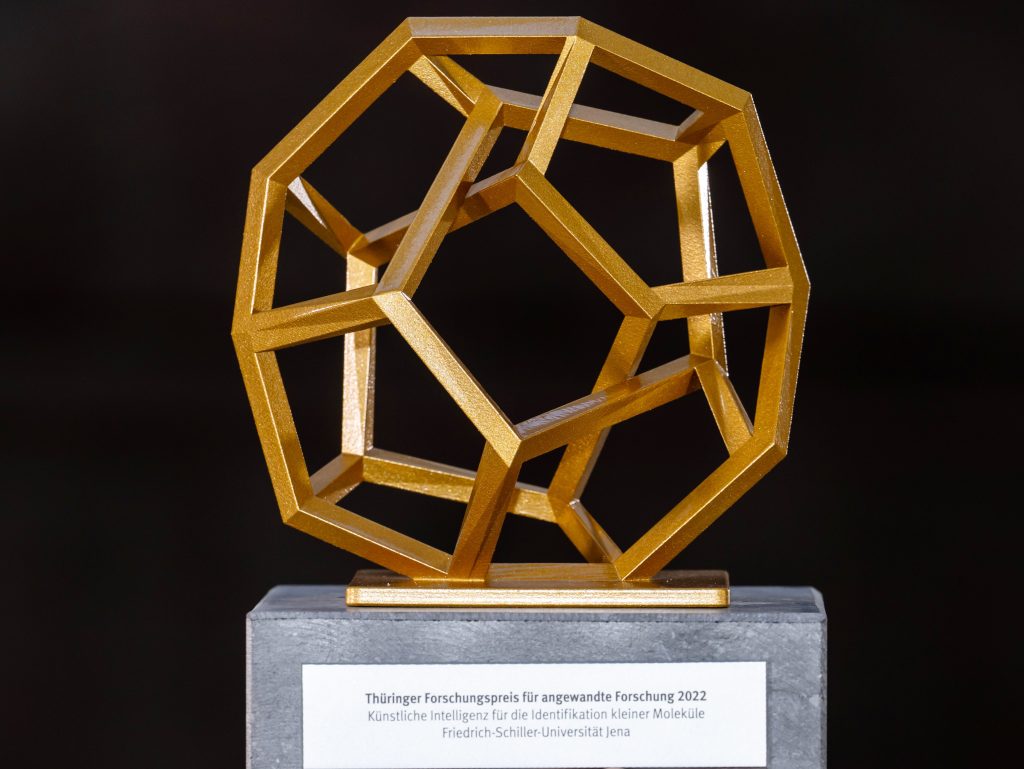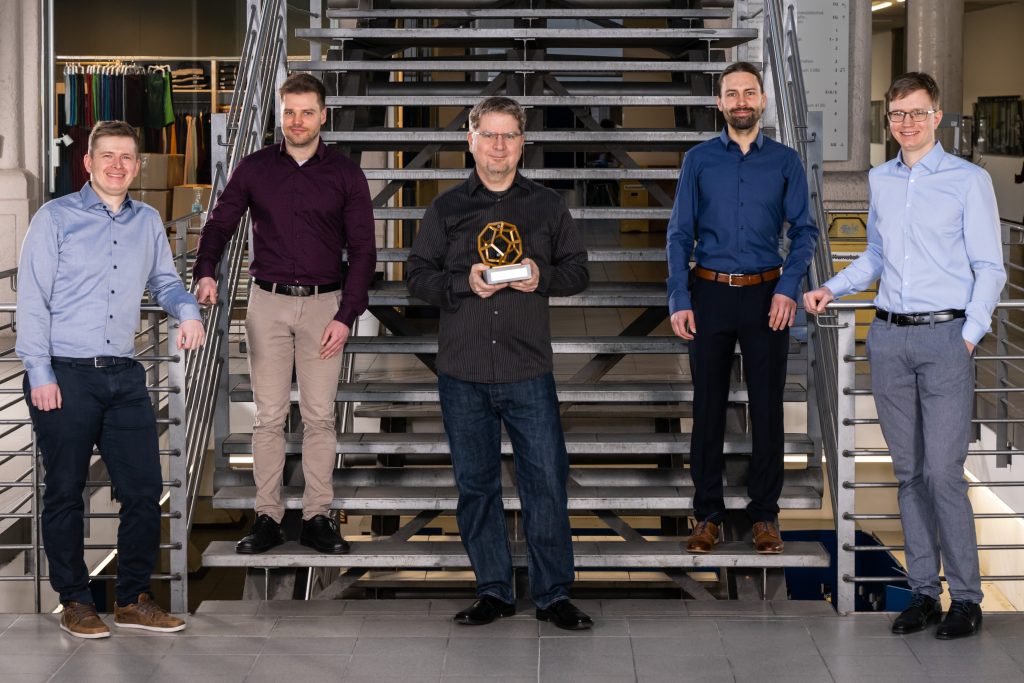Markus, Martin and Marcus have been at ASMS 2023 in Houston, USA.
Thanks everyone for the great discussions at our poster.
Friedrich-Schiller-Universität Jena, Fakultät für Mathematik und Informatik
Today (06 April), Prof. Sebastian Böcker, Dr. Kai Dührkop, Dr. Markus Fleischauer, Dr. Marcus Ludwig and Martin Hoffmann were awarded the Thuringian Research Prize 2022 for applied research. This was announced by Thuringia’s Science Minister Wolfgang Tiefensee in a video presentation. The price recognizes the development of machine learning methods for identifying small molecules, including CSI:FingerID, COSMIC and CANOPUS. These methods can be used via our software SIRIUS.
We feel very honored.
You can find the official announcement here.
The press release from Friedrich Schiller University Jena is here.


We are happy to announce that a new version of SIRIUS is available. With that, CANOPUS now supports negative ion mode data. Additionally, we included more structure databases CSI:FingerID can search in, such as COCONUT (Sorokina & Steinbeck, 2020) and NORMAN (Brack et al., 2012). And in case an important database is missing: With the new version, you can import custom databases using the GUI.
Even more features:





Congratulations!

A preprint of our paper “ZODIAC: database-independent molecular formula annotation using Gibbs sampling reveals unknown small molecules.” is now available: https://doi.org/10.1101/842740
ZODIAC takes advantage of the fact that an organism produces related metabolites. ZODIAC builds upon SIRIUS and reranks molecular formula candidates, optimizing annotations on whole datasets. By applying ZODIAC to multiple datasets we greatly increased the number of correct annotations and identified novel molecular formulas which are not present even present in PubChem.
ZODIAC will be made available in an upcoming release of the SIRIUS software.
Sebastian, Kai, Martin and Marcus are attending the German Conference on Bioinformatics in Heidelberg. We look forward to a great conference.
Marcus is presenting ZODIAC on Monday at ASMS. This is our new method which enables comprehensive molecular formula identification on whole datasets.
The talk is “The whole is easier than the parts: Improving molecular formula identification using Gibbs sampling on fragmentation trees”.
Kai and Marcus will give talks at Metabolomics conference 2017 in Brisbane on Wed, June 28th.
Kai will talk about CANOPUS, the new tool for compound category prediction. Marcus will discuss ZODIAC, a method for comprehensive molecular formula identification on complete LC/MS runs with tandem mass spectra.
Our new version, Sirius 3.5, comes with several advancements. Download and use it here.
We have a new overview tab for CSI:FingerID hits which displays results of structure search for multiple molecular formulas.
You can examine the predicted fingerprint of each compound (and molecular formula) independently of any database.
We now offer the possibility to create and search in custom structure databases.
Besides, we have a new bayesian networks scoring function for CSI:FingerID which considers dependencies between different molecular properties.
This and much more.
A new Sirius version is available. We included new features to enable a more intuitive workflow. We hope you’ll like it. Download and use it here.
We provide element prediction using isotope pattern. CSI:FingerID now predicts more molecular properties which improves structure identification.
Besides we fundamentally changed the structure of the result output generated by the command line tool to its final version. This means you might have to adjust your workflow.
Kai, Franziska and Marcus are visiting the Metabolomics in Dublin from Monday, 27 June 2016 to Thursday, 30 June 2016.
Franziska is giving a talk on the Significance of metabolite identifications from searching mass spectral libraries.
Marcus will speak about our new Confidence score for CSI:FingerID identifications.
Kai will present the new SIRIUS 3.2 release.